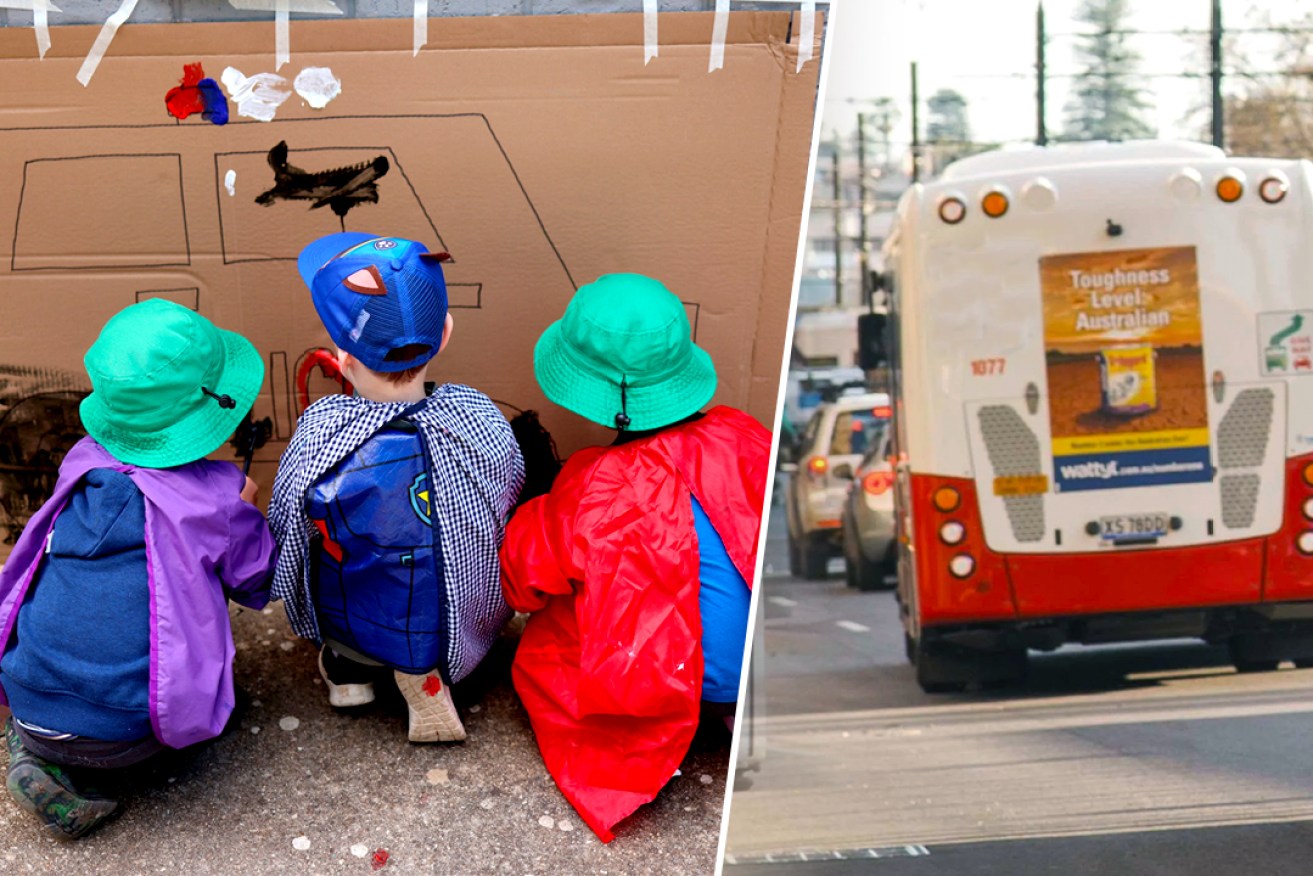No buses, no cars: Families’ daily struggle to access SA preschools
South Australian families in suburbs with poor “walkability” ratings can’t get their children to childcare and early learning centres as they struggle with citycentric bus routes or don’t own a car, according to the state’s new Thrive by Five coalition.


Concerns are particularly focused on Adelaide’s northern suburbs rated as having the least “walkability” in the state, with one local advocate saying “there has been a long history now of our children being behind in their development rates than other kids across the state”.
Commissioner for children and young people Helen Connolly backed the concerns, saying a national university study showed in a walkability index that four of the worst six suburbs in Adelaide are in the north: Munno Para West, Munno Para, Hillbank and Andrews Farm.
“This area has the least walkability suburbs and the lowest rate of car ownership, poor public transport is an issue,” she said.
Brad Chilcott, coordinator of the Thrive by Five alliance of 13 leading SA organisations, said increasing numbers of centres are sited off bus and train routes, meaning transport is now the second biggest barrier to early learning behind cost.
The coalition launched in April to lobby for reform in access to early child development, in a bid to halt growing generations of students starting school behind their peers and sometimes never catching up.
Chilcott said any plans to provide cheaper or free early learning access to some families must be backed by better transport, or many would still not take up the option.
The coalition has made representations to the State Government’s current Royal Commission into Early Childhood Education and Care that is looking at how universal quality preschool programs for three and four-year-old children can be delivered in SA.
“One person may have one kid or more, they might be dropping one to school and early earning and have a baby and they have to do all of that on public transport – it’s a challenge,” Chilcott said.
He said having access to pre-school learning was important as “the data is showing that brain development aged zero to five is essential for long-term success”.
Badly planned siting of early learning and childcare centres in new-build housing estate is particularly making it harder for families in the northern suburbs, Playford Council chief executive officer Sam Green said.
“It means that they are not able to access services that are there, it means the children in our community are tending to enter into school developmentally behind other children in the state and the research shows they actually never catch up,” Green said.
“In the northern suburbs, there has been a long history now of our children being behind in their development rates than other kids across the state, it has been a long-term problem.”
Green said the State Government needs to look at overhauling public transport routes and to provide more east west travel rather than buses only travelling to and from the city.
He also wanted better planning of childcare and early learning centres to ensure families could walk to the sites or take public transport to an existing hub, the council making its own representation to the royal commission with its findings due to be released in August.
“There are also too many schools or sites where parents tend to have to drop and move on and they don’t stop and mingle with each other to build relationships with other parents in the local community,” Green said.
Changing this approach could lead to building relationships where parents could help each other with transport, or learning about other parents’ solutions to challenges they are having with their children.
Parent Margaret Rodriguez moved to Pooraka from India and struggled with getting her two sons to pre-school and school, made further challenging by one child having a disability.
“I was always so puzzled and I felt lost and lonely in travelling,” she said.
“I was not very good at catching the public transport as it always gave me a bit of anxiety.”
Not-for-profit Goodstart Early Learning stepped in and offered a bus service “to pick and drop my boys everyday to child care, taking away one of my biggest burdens each morning”.
“I personally think and feel this access to the Bus service that Goodstart offers is a huge relief for any parent working, or staying at home. It gives us parents a sense of security and assurance that our kid is being well taken care of,” Rodriguez said.
Thrive by Five was launched with support from the Minderoo Foundation and its three-point plan calls on Premier Peter Malinauskas to lead early years reform in the national process, along with better wages and conditions for the early years’ workforce.
It also wants a “formal commitment to a truly universal system which recognises that every child deserves access to quality, inclusive and appropriate early years services”.
The alliance plan is endorsed by the Australian Association of Infant Mental Health, the Australian Education Union SA Branch, Children and Young People with Disability Australia, Connect.Ed, Federation of Ethnic Communities Councils Australia, Goodstart Early Learning, Playgroup SA, the Preschool Directors Association of South Australia, the South Australian Primary Principals Association, United Workers Union, the University of Adelaide, Robinson Research Institute, the University of South Australia and Welcoming Australia.




